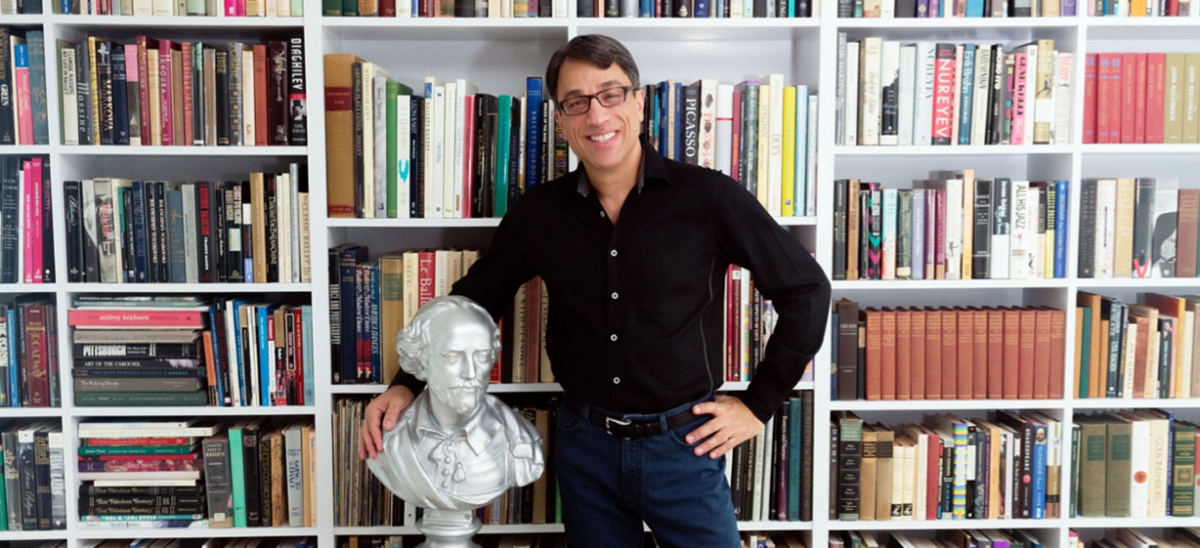
How did I find myself in Pittsburgh? That’s a complicated question. I was born in Tampa to Greek immigrant parents, so my first few years were spent in Florida surrounded by a very Greek community. (There are more Greeks there than you might think.) Then we moved to Gary, Ind., where my father worked as a laborer for U.S. Steel. So, I guess, I’m from Gary.
When I was a little boy, my parents, my sister and I traveled to Greece for an extended visit, at which time I had the opportunity to meet many of our relatives. Greek was my first language, so the experience was not difficult for me. My family actually moved to Greece when I was 11, but decided to return to the U.S. when I was 13 so I could complete my education.
I excelled at school and was always involved in many activities: student council, newspaper, orchestra, and so on. I played the violin and was pretty good. It was a unique and special distinction to be in our school orchestra, and it became a big part of my life. I also continued my studies in the Greek language and Greek history on weekends. But my main focus was on academics because I needed a scholarship to be able to go on to college.
In my junior year, I transferred to a different high school because it had an outstanding theater program. It was a Catholic school (even though I’m not Catholic) and there was a priest there who was a terrific stage director. I wanted very much to attend that school, which was a private institution, and was able to do so by choreographing the school’s musical shows, which helped defray the high tuition costs.
I graduated from high school in Indiana in 1971 and went to college (on scholarship) at Northwestern University in Evanston, Ill. It was the school I had dreamed of attending because I decided in high school that I wanted a life in the theater. At the time, and certainly in the geography of where I lived, Northwestern was the premier theater school. My experience there was wonderful and enriching and, after graduation, I moved to New York immediately. By that time, I was already a working actor. Next stop: Broadway, I thought. Well, Off Broadway, at least. It was exciting.
My sister, who is six years my senior, was and is the most influential person in my life. She continues to teach, guide and inspire me. She’s an artist herself with incredibly sophisticated taste. She is adventurous and possesses so many different skills. She continues to surprise and astonish me with the range of her gifts, whether they are in painting or sculpture, or growing trees and flowers, interior design, landscaping or activism. (She’s a passionate supporter of animal rights.) Ever since I was a child, I read the books she read. I learned to play music on her violin, and started dabbling with art because she left her paintbrushes around. I still spend summers near her in Greece, where she and my mother, who’s nearly 92, still live. And we are very, very close.
My mother was a couture-level seamstress. A beautiful gown or a handsome men’s suit was always being assembled somewhere in our home. People came from all over to have their wedding or cotillion dresses made by her. Even my father wore suits that my mother made and, therefore, was always the best-dressed laborer in Gary. In our family, the rule was to always present oneself impeccably. It’s a standard that my mother maintains even now. How the table is set, the way that food is presented, and so on: it all matters. She had a sense of finished-ness in everything. Hopefully, my sister and I inherited some of that, though sometimes it was exhausting to live up to that standard when we were growing up.
My parents, God bless them, were nurturing people, but were more interested in scholastic achievement than in personal expression. Part of that was their immigrant experience. They wanted to make sure that we were safe and secure before we were “fabulous.” And as you might guess, they did not like my choice of career. The theater was too insecure and, to them, undignified. It was a waste of what they considered my potential. In their eyes, it could only lead to unhappiness. They were not concerned so much about success. They were more concerned about honoring one’s gifts. I think they saw me more in an intellectual light, rather than an artistic one. It was always a bone of contention between my parents and me. They kept hoping, even after I had some measure of success, that I would finally come to my senses. For me, a life in the theater became a very private and personal journey. It was something I did on my own and, I think, for that reason, if for no other, it has remained precious to me. It’s something that I chose to do despite resistance.
In my view, the art of the theater is something that is handed down, and most of my professional growth has been through teachers and mentors. Even today, I have a hard time realizing that I’m 61 years old when, in my head, I feel 16. I’m still learning every day about the one thing that really matters to me.
When I arrived in New York it was 1975, and the great directors and choreographers were still working: Bob Fosse, Michael Bennett, Gower Champion and Jerome Robbins, to name some. And I did what I have always done: I rolled up my sleeves, jumped right in and tried to learn. I found a job at the Metropolitan Museum of Art (in the Egyptian department while they were preparing the first Tutankhamen exhibit) at the time when fashion editor Diana Vreeland was assembling phenomenal costume exhibits. I got to see many legendary designs up close and in person. Shortly thereafter, John Houseman, who has since passed, of course, was running The Acting Company, and I got a job there as a production assistant, which involved preparing the rehearsal hall, prompting the actors in rehearsal and assisting the stage managers. I was assigned to assist director Gerald Gutierrez—in my opinion the finest stage director of his generation—who was working on a play by a young and yet relatively unknown playwright named David Mamet. I became Gerald’s assistant and, ultimately, his good friend from that time until his death in 2003. He was so incredibly prepared for every play. I learned from him to have a clear understanding of the spine of a play and how every character and every moment fit into it.
My entire life and career has been a series of unique coincidences, opportunities and exceptional moments. I have worked with some fascinating and talented people and I still don’t understand how I got into the mix. I got a job as Al Pacino’s dresser for a Broadway play for which he won a Tony award, “The Basic Training of Pavlo Hummel,” by David Rabe. From Mr. Pacino, I learned that every performance is sacred. Every time he took to the stage was an attempt at perfection. He was so good that it seemed like he was making up the text as he went along. To see him bring a play to life was extraordinary, and to learn how much he believes in the theater in an almost religious way was very inspiring for me.
But even though my career in New York was blossoming, I still felt unfulfilled. There wasn’t one thing I wanted. I wanted everything. I wanted to act. I wanted to direct and to choreograph. I wanted to stage-manage. And to this day, other than being accepted at Northwestern, the very best thing that ever happened for me in New York was getting a phone call from the great Harold Prince, king of the theater world. I remember where I was standing and what I was wearing when I returned his call. He wanted to meet with me because he had been hearing nice things about my choreography. Would I be interested in talking to him about choreographing a new project he had in the works? Well, needless to say, the answer was, “Yes.” So, Mr. Prince hired me and we became friends. From him, I learned that, once you put your team together, you must trust everyone and not second-guess things. You must also treat everyone with respect. I have never met a finer gentleman than Hal Prince. He made me feel as if I mattered, as if I was an equal.
When you are optimistic, as I was, you open your life up and many great things can happen. For example, one day, Beverly Sills called me to direct a new production of “Naughty Marietta,” the Victor Herbert operetta. It required a new book and some new lyrics, which I was commissioned to write for the New York City Opera. The show was a hit for the company and Ms. Sills invited me to stay on. We became very good friends, too. From her, I learned that show business is supposed to be fun, and she made every moment fun. I loved her and miss her.
But great as all this was, I still wanted to learn more, so I decided, amid all the other things I was doing—Las Vegas extravaganzas, television work and concerts in Europe—to go to graduate school. Everyone thought I was crazy because my career was on a roll. But I wanted a different type of life in the theater. I was more interested in classical and analytical work. Eric Bentley, who was, at the time, the dean of international theater critics, was teaching a course at Hunter College in New York, so I got accepted there and studied with him. Once again, I put myself in a position where I had access to genius. I wanted to stay close and ask questions, to watch him work and read his writings before they were edited, and to hear him speak before he edited himself. It was a great experience.
Now, all the people I’ve mentioned were very generous with me. They were successful and optimistic and liked to give young talent a break. But there are so many different ways of working in the theater, and being in the commercial circus was never really something that enticed me. Inevitably, if you go to New York and manage to work there, you’re going to be a part of the commercial theater, but I wanted something else. And it still amazes me that my dream came true because most people, certainly in the arts, are lucky if they realize just a small piece of their dream. For me, the dream came together in Pittsburgh.
In the early 1990s, I had been invited to Pittsburgh Public Theater when it was still on the North Side. Edward Gilbert was the artistic director. In New York, I had worked with two wonderful writers—Jeff Lunden and Arthur Perlman—on a series of shows for young audiences. (I needed to stay in the city to finish my master’s, so I signed on to do all sorts of projects.) Jeff and Arthur wrote this gorgeous new musical called “Wings” based on the Arthur Kopit play. Eddie Gilbert decided to produce it at The Public, the authors recommended me to direct, and that’s how I got here, initially. I came and had a lovely success and was invited back, subsequently, seven years in a row.
When Eddie Gilbert decided to move on, I was one of 46 people who were up for his job. It was a plum, first of all, because Pittsburgh Public Theater had such a great reputation, but also because they had just built a new theater and someone was going to have the first full season in that space. Many very talented people wanted that job, and I don’t even remember why I applied. I never thought it was even a possibility, but I asked myself, “Wouldn’t it be great?” I love the Pittsburgh audience. It’s so smart and discerning. I remember that I was rehearsing a show at Goodspeed Musicals in Connecticut and mentioned to the producer, “I just got an offer to move to Pittsburgh and run Pittsburgh Public Theater.” He said, “You’re doing it. You’re finally going to get to do all the shows you’ve wanted to do.” And I have, which is amazing to me.
Among all my adventures in New York, I managed to get involved as a board member of my union, the Stage Directors and Choreographers Society. For 15 years, I served on that board and eventually became its president, which meant I headed up the union that represented all of the professional directors and choreographers of America, including Harold Prince (who enjoyed calling me “Mr. President”). I had a certain amount of responsibility in helping to negotiate contracts and helping to guide the American theater forward through the work of the directors and choreographers.
For the board of Pittsburgh Public Theater, I believe, this experience made me a more viable candidate to become artistic director of the company. I had the private phone numbers of every director in America, for one thing. And I became an unusual resource. Though I had no experience in running a theater company, I had run a national union that was aligned with the arts. That became my calling card, above and beyond the productions I had directed here. So on my birthday, I packed my bags—25 years to the week since I had moved to New York—got into a van with my cat and all my books, and moved to Pittsburgh—and I have never looked back. I just knew that this city and I were a perfect match.
As you might expect, I’ve met people in Pittsburgh who have continued to teach and mentor me. I’ve had great board presidents and board members, and loyal friends here throughout my tenure. But the person who embraced and guided me the most consistently and constantly was David Matter (formerly the president and CEO of Oxford Development Company). He taught me so much about creating opportunities for the company and then seeing them through. And it’s been a great ride for me. I’ve been able to introduce Greek drama here for the first time. We also produced Clifford Odets and Lillian Hellman. We’ve had tremendous successes with our Shakespeare productions and with big musicals, for which we have to pull up the floor to make room for a live orchestra below. And, of course, we produced “The Chief,” a wonderful play with a brilliant performance by Tom Atkins as legendary Steelers founder, Art Rooney. That show just caught fire. It was like lightning in a bottle and was so much more successful than anyone could have imagined. We played it off and on for nine seasons. We filmed it. The script was published. We had a gala around it. And we attracted new audiences and friends, and had a swell time.
This season marks the 40th anniversary of Pittsburgh Public Theater, and my job continues to be an exciting adventure and a never-ending challenge, at the center of which is my curiosity about what tomorrow will bring. I have the responsibility to make sure that we end each season “in the black,” and we do. It’s a remarkable achievement that takes a lot of people to accomplish: a terrific board of trustees, a wonderful funding community, solid corporate support, generous individual gifts, and a staff unlike any other. I’ve worked at many theaters around the world and don’t think I’ve ever known a group as smart about maintaining the bottom line without compromising quality. We have a magnificent combination of talent, intelligence, discipline, and energy here. I’m really part of a team. At times I’m in rehearsal and others must carry the ball, but I never ever worry. I trust everyone implicitly.
Theater is the most logical way to introduce young people to the arts. It’s entertaining, lively, fun, pretty, boisterous and immediate. And I think we do a really good job of keeping the torch burning brightly for live theater in the region. My dream was always to spend my life in the theater, and I inherited so much from so many wonderful people. Part of my job now is to maintain a certain standard, not only to keep discovering bigger and better ways to produce live theater, but also to build an audience for tomorrow, for when I’m no longer running the company. One should want to leave things stronger and more wondrous than when you arrived on the scene. That’s my responsibility, and it’s a privilege and a pleasure.





